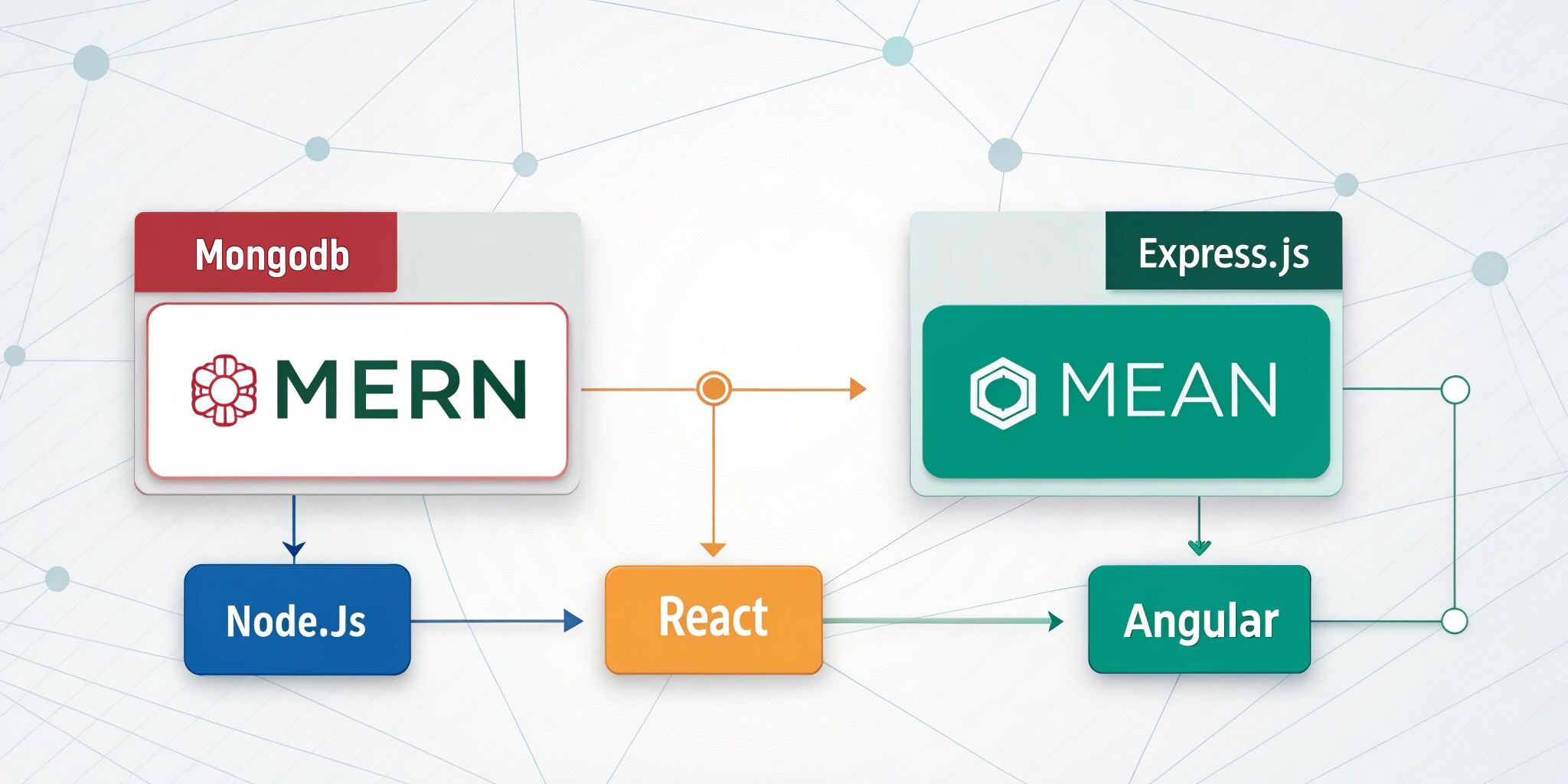With the rapid evolution of web development, full-stack JavaScript frameworks have become the go-to solution for building dynamic and scalable web applications. Two of the most popular stacks in this space are the MERN and MEAN stacks. But how do they differ, and which is right for your project?
What is a Web Development Stack?
A web development stack is a collection of technologies used together to build a web application — from front-end interfaces to back-end services and databases.
What is the MERN Stack?
MERN stands for:
- MongoDB – NoSQL database
- Express.js – Web framework for Node.js
- React.js – Front-end library developed by Facebook
- Node.js – JavaScript runtime for server-side development
MERN is ideal for single-page applications (SPAs) and real-time applications where dynamic interfaces are crucial.
What is the MEAN Stack?
MEAN stands for:
- MongoDB – NoSQL database
- Express.js – Backend framework
- Angular – Front-end framework by Google
- Node.js – Server-side JavaScript runtime
MEAN is better suited for large-scale enterprise applications due to Angular’s strong structure and tools.
MERN vs MEAN: Key Differences
FeatureMERN StackMEAN StackFront-endReact.js (Library)Angular (Framework)Learning CurveModerateSteeperFlexibilityHighStructuredPerformanceFaster in dynamic UIsBetter in structured UIsCommunityLarge React ecosystemStrong enterprise support
Use Cases:
Choose MERN when:
- You want fast, dynamic, and interactive UIs.
- Building single-page applications (e.g., dashboards, social apps).
- Prefer flexibility and component-driven architecture.
Choose MEAN when:
- You need scalable and maintainable large applications.
- Building enterprise-grade web portals.
- Require a well-defined structure with tools like TypeScript.
Pros and Cons
MERN Pros:
- Faster performance in rendering.
- Huge community support.
- Component-based architecture.
MERN Cons:
- Less opinionated; may lack direction for larger teams.
MEAN Pros:
- Built-in tools and structure.
- Excellent for maintaining large projects.
- TypeScript support with Angular.
MEAN Cons:
- Steeper learning curve.
- Angular can be overkill for small projects.
Conclusion
Both MERN and MEAN stacks offer robust solutions for full-stack JavaScript development. The right choice depends on your project’s size, team skills, and the kind of user experience you want to create. MERN gives you flexibility and speed, while MEAN provides structure and scalability.


